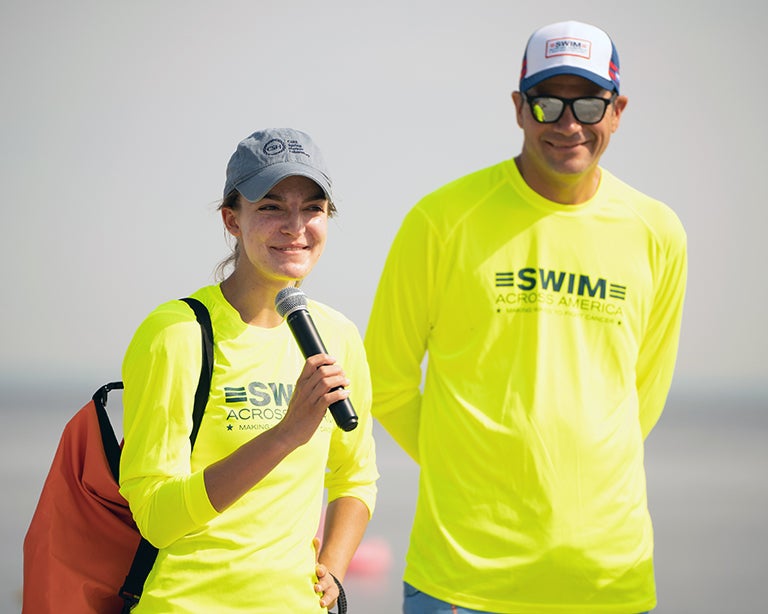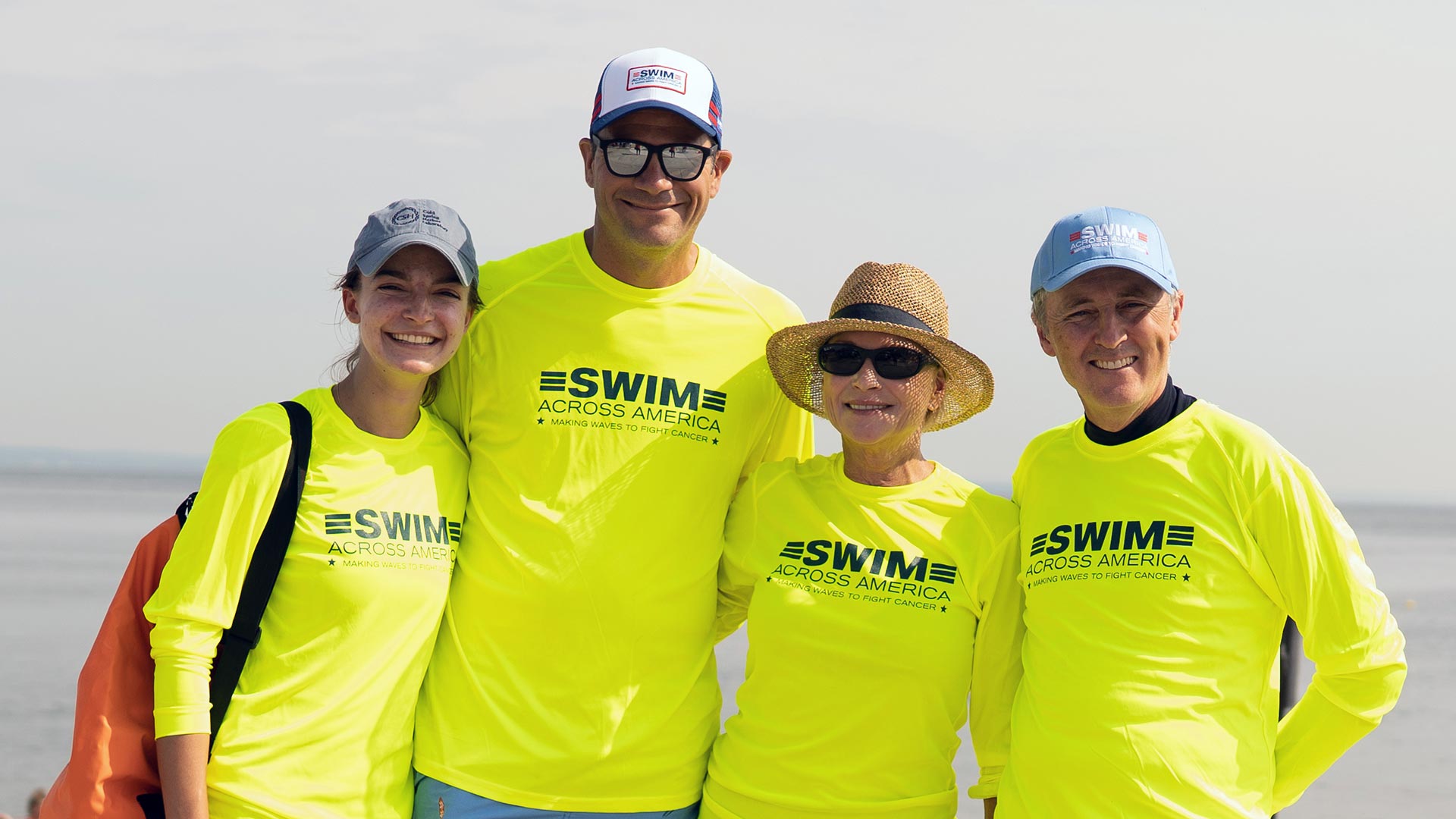According to the American Cancer Society, more than 20,000 women are diagnosed with ovarian cancer every year in the U.S. For most of these women, the cancer has already spread to other organs (metastasized) at the time of diagnosis.
In addition to malignant cancer cells, tumors are composed of a network of immune cells, blood vessels, chemical signals, and support structures. These other components are known as the “microenvironment.” Cold Spring Harbor Laboratory (CSHL) Professor Mikala Egeblad studies how the microenvironment helps tumors spread to other organs. In research supported in part by Swim Across America (SAA), the Egeblad lab is studying the role of recruited immune cells, such as macrophages and T cells, in ovarian cancer metastases. Macrophages normally kill and attack bacteria, but such beneficial functions can get corrupted by cancer cells, so they instead help cancer to spread.

SAA is a national organization that funds cancer research, clinical trials, and patient programs by hosting annual charity swims. The SAA charity swims partner with beneficiaries in their local communities. Beneficiaries volunteer at the swims, share stories of impact, and join swims. Thousands of swimmers participate in more than 20 swims around the nation each year.
Egeblad explains her research program as follows: “We want to understand both the good and the bad side of the microenvironment. The funds from SAA are helping us understand how to change a bad microenvironment to a good one. We are also studying how cancers first ‘set up shop’ when they arrive at new organs. When metastatic cancers first arrive at a new location, that location isn’t set up to nourish them,” Egeblad says. “We’d like to understand how metastases develop, what enables cancer cells to succeed in the new organ, and why it is not eliminated or controlled by the immune system. This will be key to figuring out how to put an end to cancers’ spread.”
